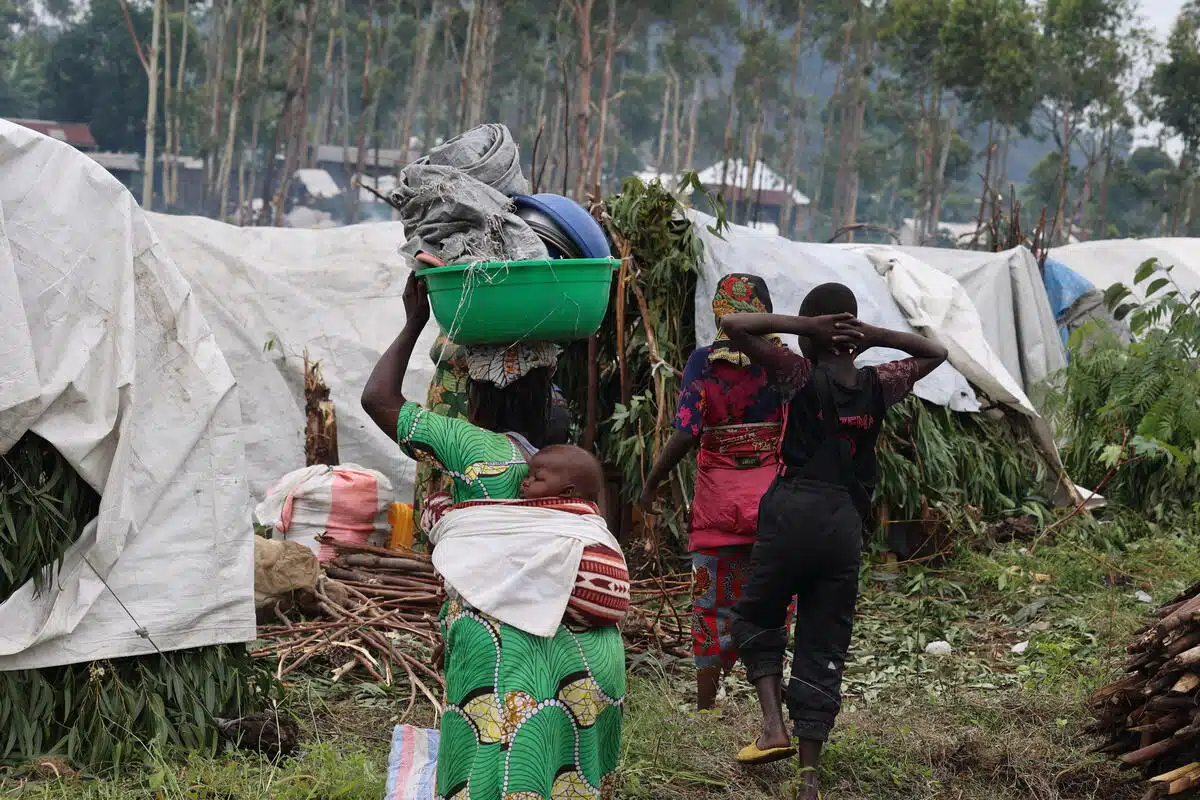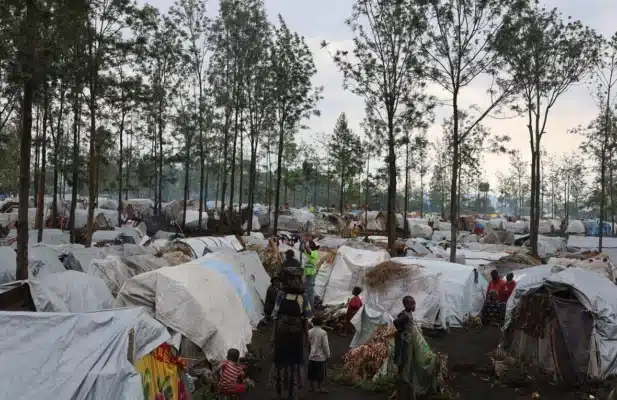
A displacement site near the provincial capital of Goma. Many families have fled to the city to escape escalating violence in DRC’s North Kivu province. © UNHCR/Blaise Sanyila
This is a summary of what was said by UNHCR spokesperson Matthew Saltmarsh – to whom quoted text may be attributed – at today’s press briefing at the Palais des Nations in Geneva.
UNHCR is gravely concerned about the safety and security of civilians and internally displaced people (IDPs) in the eastern Democratic Republic of the Congo (DRC), as conflict further intensifies across South and North Kivu Provinces. The number of people displaced has now surged to more than 400,000 this year alone, almost double the number reported just last week.
Since our last update on 17 January, bombs have fallen on IDP sites. On 20 January, explosions at Kitalaga site in South Kivu killed two children, while on 21 January, five makeshift shelters were destroyed in Nzuolo and yesterday, Bushagara site was heavily impacted, causing panic and new waves of forced displacement.
Violence has also escalated in South Kivu’s Minova and Kalehe territories, displacing an additional 178,000 people as intense clashes led to non-state armed groups taking control of the town of Minova and the locality of Kalungu. At least 80 per cent of the population fled towards the city of Goma. UNHCR colleagues are monitoring cross-border movements and stand ready to respond to any potential outflow of asylum-seekers.
Meanwhile, fighting intensified in the North Kivu town of Saké, approximately 25 kilometres from Goma, culminating in non-state armed groups seizing control. Heavy bombardments caused families from at least nine displacement sites on the periphery of Goma to flee into the city to seek safety and shelter. Many spent last night sleeping on the streets and in green spaces across the city.
Persistent clashes between belligerents in these areas continue to deteriorate the protection environment for civilians in South and North Kivu Provinces which are already home to 4.6 million internally displaced people. Human rights violations, including looting, injuries, murders, kidnappings and arbitrary arrests of displaced people mistaken for rebels have escalated. Hospitals are nearing capacity with injured civilians. Vulnerable women, children, and the elderly are living in overcrowded and precarious conditions with limited access to food, water, and essential services.
Humanitarian access to address these urgent needs is significantly restricted. All roads to Minova, including for humanitarian aid, are closed. Indiscriminate shelling has forced the temporary suspension of life-saving activities in several areas in North Kivu.
UNHCR echoes the Secretary General’s call to uphold human rights and international humanitarian law, and to ensure immediate and unrestricted access to populations in need of humanitarian assistance. UNHCR also urges all parties to prioritize the protection of civilians, respect the civilian nature of IDP sites and refrain from using explosives and heavy weapons in overcrowded civilian environments.
It is vital, and long overdue, for peace to take root in the Democratic Republic of the Congo for the benefit of its people and the region.
For more information or media inquiries, please contact:
- In Kinshasa: Rachel Criswell, criswell@unhcr.org, +243 82 52 57 774
- In Pretoria (regional): Edward Ogolla, ogolla@unhcr.org, +27 63 548 2215
- In Geneva: Eujin Byun, byun@unhcr.org, +41 79 747 8719
Originally published by UNHCR on 24 January 2025





